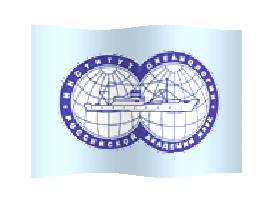О лаборатории
Лаборатория основана в 1989 г под названием «Лаборатория аэрокосмических методов исследования океана». Первым и многолетним ее руководителем был В.Н. Пелевин. После смерти В.Н. Пелевина в 2005 г лабораторию возглавил П.О. Завьялов, который и руководит ею до настоящего времени.
В связи с некоторым смещением основной тематики исследований лаборатория была переименована и приобрела свое современное название в 2006 г. Следует отметить, однако, что развитие методов дистанционного зондирования океана по-прежнему остается одним из направлений деятельности коллектива. Так, за последние годы получила дальнейшее развитие разработанная В.Н. Пелевиным методика лазерного картирования полей концентрации хлорофилла, взвеси и растворенных органических веществ, в том числе загрязнителей, на ходу судна посредством анализа спектров вынужденной флуоресценции поверхности океана. Этот метод обеспечивает очень высокое горизонтальное разрешение (от первых метров), практически недостижимое никакими иными средствами. Специалистами лаборатории созданы и испытаны в натурных условиях разных морей опытные образцы нового оборудования - ультрафиолетовые флуоресцентные лидары. Коллективом разработаны также собственные алгоритмы расчета по спутниковым изображениям поверхностных морских течений (т.н. «метод максимальных кросс-корреляций»), распространения речного стока и переноса взвеси. В состав лаборатории входит также отдельная Группа синоптических процессов в океане.
И все же центр тяжести исследований лаборатории в настоящее время лежит в области натурных исследований прибрежной зоны морей и внутренних водоемов. В фокусе наших научных интересов находятся процессы взаимодействия океана с пресноводным материковым стоком, а также механизмы антропогенного давления на морские и береговые системы, включая антропогенное загрязнение морской среды. Среди основных тематических направлений последних лет – развитие собственной лагранжевой численной модели речных плюмов в море, оценка загрязненности морей вблизи устьев ряда рек, обнаружение проявлений разгрузки в море подземных вод, прогноз риска подводных оползней и другие....
Подробнее
Последние новости
Президент вручил премии в области науки и инноваций молодым ученым
В числе награжденных оказался сотрудник нашей лаборатории доктор физико-математических наук из Института океанологии им П.П. Ширшова РАН Александр Осадчиев..
Зимняя экспедиция на Черное море
С 9 по19 декабря состоялась экспедиция на Черное море! Характер исследований практически совпадал с исследованиями в осеннюю экспедицию этого года. Отбирались пробы воды и грунта на черноморском поб..
Андрулионис Н.Ю. защитила кандидатскую диссертацию
Защита диссертации состоялась 11.10.2022 г. в Федеральном государственном бюджетном учреждении науки Институте океанологии им. П.П. Ширшова Российской академии наук..
Осенняя экспедиция на Черное море
С 16 сентября по 1 октября проходила экспедиция на Черное море. Выполнялись гидрофизические и гидрохимические исследования на полигоне в юго-восточной части Керченского пролива...







